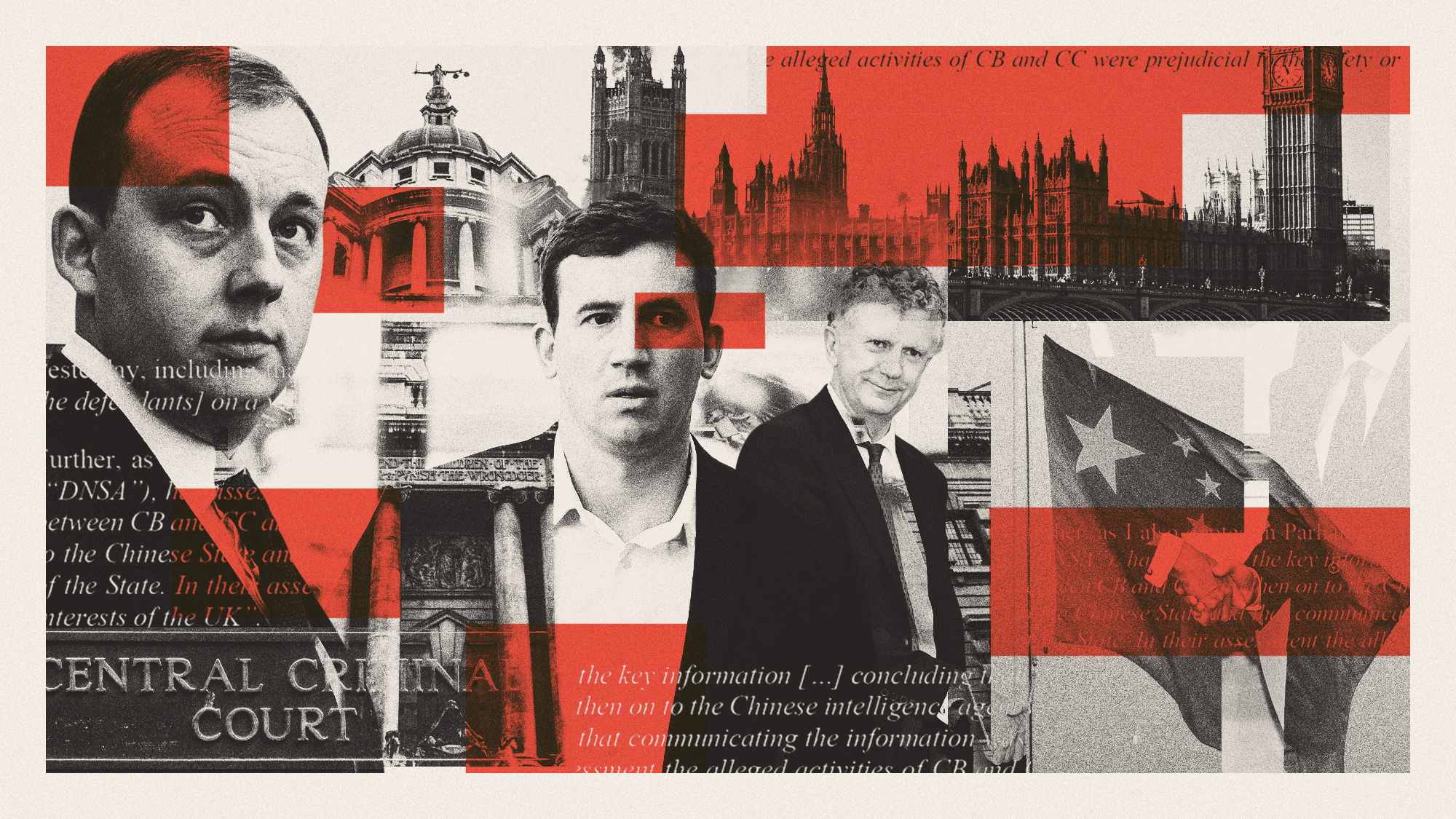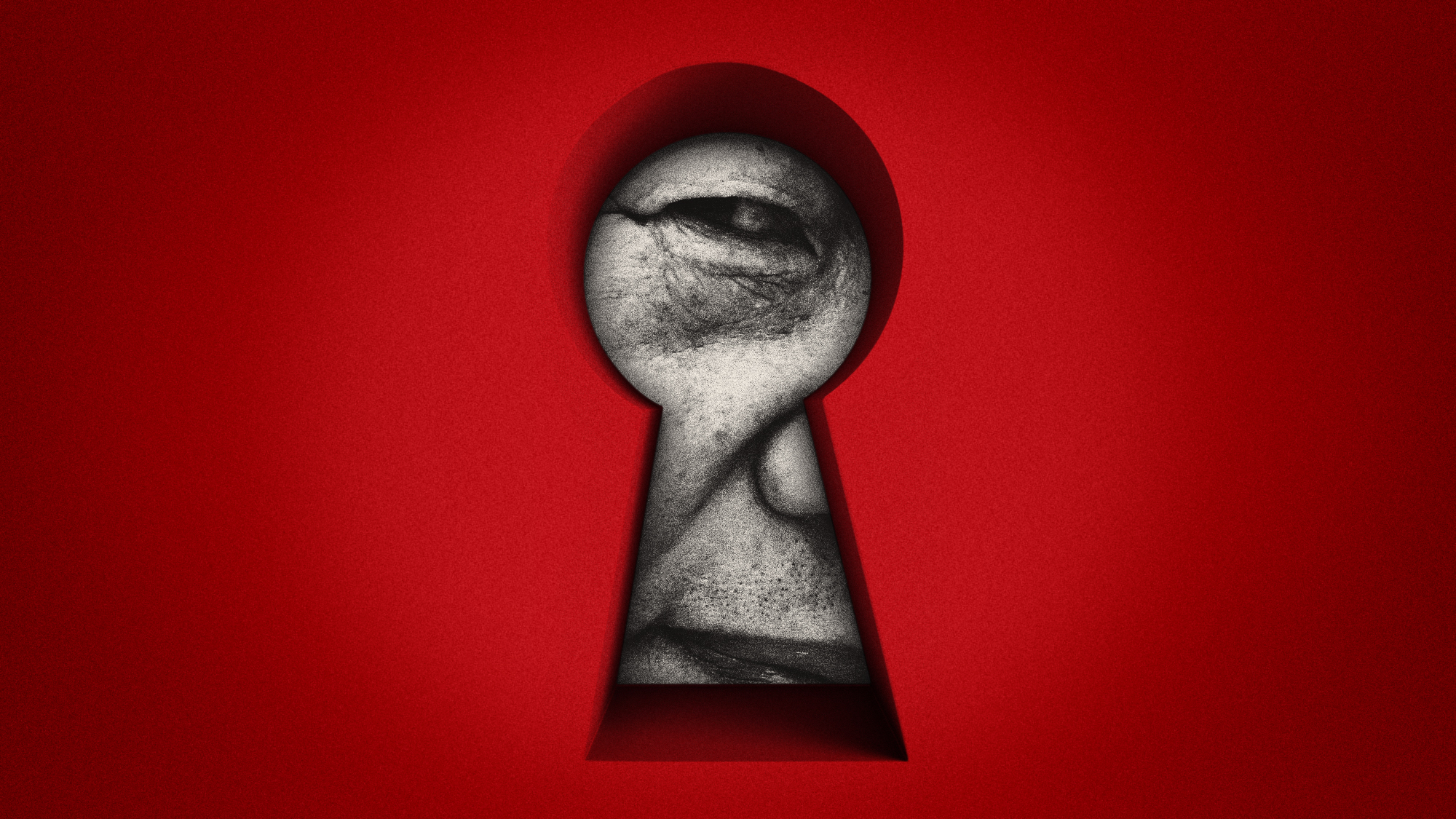Why did the China spying case collapse?
Unwillingness to call China an ‘enemy’ apparently scuppered espionage trial

A free daily email with the biggest news stories of the day – and the best features from TheWeek.com
You are now subscribed
Your newsletter sign-up was successful
The trial of two men accused of spying for China was due to start at London’s Woolwich Crown Court today. Instead, charges against parliamentary researcher Christopher Cash and teacher Christopher Berry were dropped last month in controversial circumstances.
Both men – who maintain their innocence – were charged with violating the Official Secrets Act, which meant prosecutors would have had to prove that they had acted for an “enemy” state. But, according to The Sunday Times, Jonathan Powell, Keir Starmer’s influential national security adviser, said the government’s “star witness” in the case would have to base his evidence on the National Security Strategy 2025 – which describes China as a “geostrategic challenge”, rather than an “enemy”. And so the trial was “doomed”.
What did the commentators say?
In order “not to upset” Beijing, with whom it is pursuing closer ties, the government “fatally undermined” Scotland Yard’s investigation into the suspected espionage, said David Sheppard and Helen Warrell in the Financial Times.
The Week
Escape your echo chamber. Get the facts behind the news, plus analysis from multiple perspectives.

Sign up for The Week's Free Newsletters
From our morning news briefing to a weekly Good News Newsletter, get the best of The Week delivered directly to your inbox.
From our morning news briefing to a weekly Good News Newsletter, get the best of The Week delivered directly to your inbox.
Viewing the situation in the “most generous” light, the “thawing relationship” between China and the UK could have “undermined the case”, said Caroline Wheeler and Gabriel Pogrund in The Sunday Times. But more cynical critics might say it demonstrates the government’s willingness to “prioritise closer economic links to China over matters of national security”.
The collapse of the case has sparked discontent across “both sides of the political aisle”, said David Hughes in London’s The Standard. Powell is under “renewed pressure to submit to a grilling” over this, and over the national security strategy, said James Tapsfield in the Daily Mail. If he refuses, “he could be held in contempt of Parliament”.
Home Secretary Shabana Mahmood “insisted there was no ministerial interference in the collapse of the case”, said Tara Cobham in The Independent. Asked if China was an “enemy of the UK”, she told the paper: “China is a challenge.”
What next?
Conservative ministers have “tabled written parliamentary questions” about the matter, “including to Sir Keir directly”, said The Telegraph. These are likely to centre on what role Powell and other ministers “played in the decision” not to proceed to trial.
A free daily email with the biggest news stories of the day – and the best features from TheWeek.com
Tensions around Chinese espionage still loom large. Rumours that the government is considering targeting “parts of China’s security apparatus under foreign influence rules” have triggered a warning from Beijing that it would “retaliate” if that happened, said The Guardian. So far, ministers have “refused to apply stricter foreign influence rules on lobbyists acting for China”.
Will Barker joined The Week team as a staff writer in 2025, covering UK and global news and politics. He previously worked at the Financial Times and The Sun, contributing to the arts and world news desks, respectively. Before that, he achieved a gold-standard NCTJ Diploma at News Associates in Twickenham, with specialisms in media law and data journalism. While studying for his diploma, he also wrote for the South West Londoner, and channelled his passion for sport by reporting for The Cricket Paper. As an undergraduate of Merton College, University of Oxford, Will read English and French, and he also has an M.Phil in literary translation from Trinity College Dublin.
-
 The ‘ravenous’ demand for Cornish minerals
The ‘ravenous’ demand for Cornish mineralsUnder the Radar Growing need for critical minerals to power tech has intensified ‘appetite’ for lithium, which could be a ‘huge boon’ for local economy
-
 Why are election experts taking Trump’s midterm threats seriously?
Why are election experts taking Trump’s midterm threats seriously?IN THE SPOTLIGHT As the president muses about polling place deployments and a centralized electoral system aimed at one-party control, lawmakers are taking this administration at its word
-
 ‘Restaurateurs have become millionaires’
‘Restaurateurs have become millionaires’Instant Opinion Opinion, comment and editorials of the day
-
 What is ‘Arctic Sentry’ and will it deter Russia and China?
What is ‘Arctic Sentry’ and will it deter Russia and China?Today’s Big Question Nato considers joint operation and intelligence sharing in Arctic region, in face of Trump’s threats to seize Greenland for ‘protection’
-
 Is the Chinese embassy a national security risk?
Is the Chinese embassy a national security risk?Today’s Big Question Keir Starmer set to approve London super-complex, despite objections from MPs and security experts
-
 What would a UK deployment to Ukraine look like?
What would a UK deployment to Ukraine look like?Today's Big Question Security agreement commits British and French forces in event of ceasefire
-
 Would Europe defend Greenland from US aggression?
Would Europe defend Greenland from US aggression?Today’s Big Question ‘Mildness’ of EU pushback against Trump provocation ‘illustrates the bind Europe finds itself in’
-
 Did Trump just end the US-Europe alliance?
Did Trump just end the US-Europe alliance?Today's Big Question New US national security policy drops ‘grenade’ on Europe and should serve as ‘the mother of all wake-up calls’
-
 Taiwan eyes Iron Dome-like defence against China
Taiwan eyes Iron Dome-like defence against ChinaUnder the Radar President announces historic increase in defence spending as Chinese aggression towards autonomous island escalates
-
 What will bring Vladimir Putin to the negotiating table?
What will bring Vladimir Putin to the negotiating table?Today’s Big Question With diplomatic efforts stalling, the US and EU turn again to sanctions as Russian drone strikes on Poland risk dramatically escalating conflict
-
 Blaise Metreweli: the first female head of MI6
Blaise Metreweli: the first female head of MI6In the Spotlight The intelligence service's current technology boss – known as 'Q' – has been revealed as the new chief, or 'C'